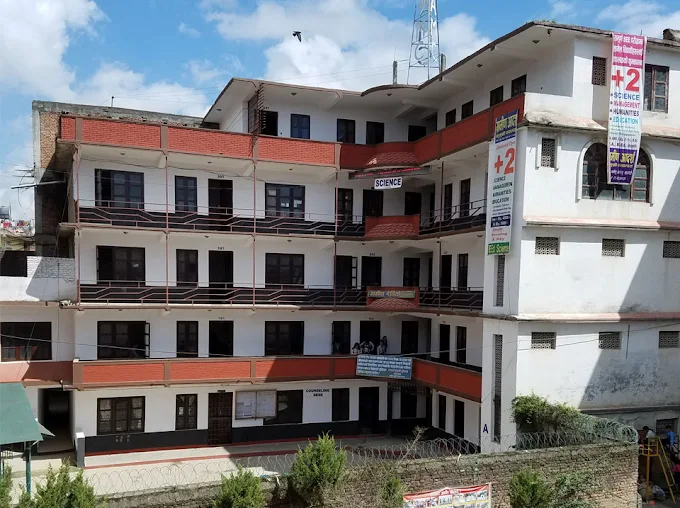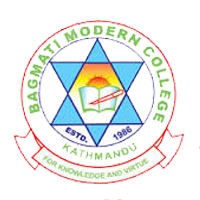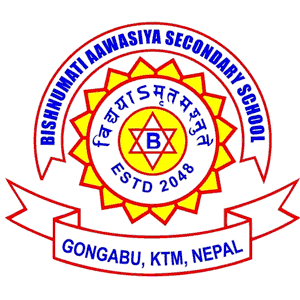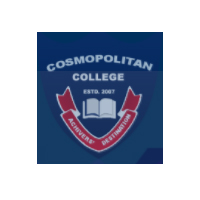Overview
Ten Plus Two (10+2) Humanities at Gramin Adarsha Multiple Campus, Nepaltar–Balaju, Kathmandu
Ten Plus Two (10+2) Humanities at Gramin Adarsha Multiple Campus (GAMC), Nepaltar–Balaju, Kathmandu, follows the National Examinations Board (NEB) structure for Grade 11 and 12. Students seeking NEB +2 Humanities in Kathmandu study language, social science, and communication subjects that connect academic reading to real community contexts.
Your two-year plan builds steady skills in writing, analysis, field observation, and media literacy needed for higher study and entry roles.

Highlights
NEB affiliation confirms national standards for curriculum and evaluation.
The stream runs for two academic years with classroom tasks, internal tests, and NEB board examinations.
Subject combinations reflect campus planning and seat availability for each intake.
Curriculum Details
Core study usually includes English and Nepali with majors from Sociology, Social Work, Mass Communication, Population Studies, and Psychology where offered.
Sociology explores social groups, institutions, change, and inclusion in Nepal.
Social Work introduces case notes, community engagement, basic counseling ideas, and program records.
Mass Communication covers news writing, reporting routines, media language, and ethics, which aligns well with campus radio practice.
Population Studies addresses demographic measures, sources of data, and simple tables that help you read trends.
Psychology introduces behavior, cognition, and learning with classroom tasks that improve self-management.
Objectives
Students learn to read critically, write clearly, and present ideas with evidence.
Students practice short field tasks, interviews, and observation notes that respect ethics.
Students build confidence in class discussions and deliver short presentations that stay on topic.
Scope
Graduates move to BA and related social science programs under Tribhuvan University and other recognized bodies.
Entry roles appear in community programs, documentation support, media houses, and education support services while pursuing higher study.
The stream suits students who plan to serve in public information, local initiatives, or development work.
Learning Outcomes
Students write concise reports and editorials, summarize readings, and prepare literature notes.
Students create interview guides, conduct short interviews, and transcribe clean notes.
Students prepare simple charts from public datasets and explain what the numbers mean for local life.
Skill Development Modules
Reading circles improve comprehension and vocabulary.
Writing clinics focus on grammar, structure, and citation basics.
Media practice uses campus radio for scripting, voice work, and program planning.
Field observation builds respectful engagement with wards, schools, and service points.
Teaching Methodology
Teaching combines lectures, class discussion, reading logs, term papers, and presentations.
Internal assessment values attendance, submission discipline, and clarity of work.
NEB board examinations certify final achievement at the end of Grade 12.
Admission Requirements
Eligibility follows NEB rules for Grade 11 entry.
Applicants submit SEE documents, character certificate, recent photos, and identification copy.
Subject choices and seats appear on campus notices during admissions.
Career Opportunities
Early roles include reporting support, content writing, field assistance for surveys, library support, and documentation.
Graduates who continue in BA gain access to broader roles in media, community liaison, and research assistance.
Scholarships and Financial Aid
GAMC considers merit and need-based requests under campus policy.
Students attach academic records and relevant evidence within the scholarship window announced each intake.
Why Choose This Course?
You value language strength, social awareness, and community connection.
The stream links reading and writing to tasks seen in real projects, from interview notes to short radio scripts.
The Nepaltar–Balaju location supports daily commuting and access to organizations across Kathmandu.
Conclusion
Ten Plus Two Humanities at GAMC builds habits that matter: careful reading, clear writing, ethical field notes, and steady preparation for BA.
Students who follow the schedule, meet deadlines, and seek feedback see consistent progress.
FAQ
What board governs the stream?
NEB governs the curriculum and Grade 12 board exams.
Which subjects can I major in?
Options include Sociology, Social Work, Mass Communication, Population Studies, and Psychology subject to campus plan.
How does internal assessment work?
Class tests, projects, reading logs, and presentations contribute to internal marks.
Does the campus offer media practice?
Campus radio supports scripting and voice training tied to Mass Communication tasks.
What comes after Grade 12?
BA and allied social science programs, along with internships or entry roles in media and community projects.























